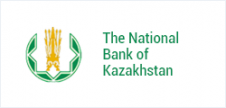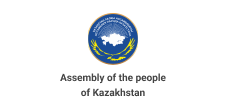Doing a Business

Investment Ombudsman
The investment ombudsman is an official appointed (determined) by the Government of the Republic of Kazakhstan, who is entrusted with the functions of assisting in the protection of the rights and legitimate interests of investors.
In accordance with the Decree of the Government of the Republic of Kazakhstan dated April 20, 2019 No. 216, the Prime Minister of the Republic of Kazakhstan was appointed as the investment ombudsman.
The legal status of the Investment Ombudsman is enshrined in Art. 314–317 of the Entrepreneurial Code of the Republic of Kazakhstan, activities are ensured by the authorized investment body.
The activities of the Investment Ombudsman are regulated by Decree of the Government of the Republic of Kazakhstan dated December 26, 2015 No. 1069.
The main functions of the investment ombudsman:
- consideration of appeals from investors on issues arising during the implementation of investment activities in the Republic of Kazakhstan, and making recommendations for their resolution, including interaction with government agencies;
- providing assistance to investors in resolving emerging issues out of court and pre-trial;
- development and submission to the Government of the Republic of Kazakhstan of recommendations on improving the legislation of the Republic of Kazakhstan on investment activities.

Business Ombudsman
The Commissioner for the Protection of the Rights of Entrepreneurs of Kazakhstan (Business Ombudsman) is appointed to the position by order of the President of the Republic of Kazakhstan for a period of four years and is accountable only to the President.
February 24, 2020 By order of the Head of State, Rustam Manarbekovich Zhursunov was appointed Commissioner for the Protection of the Rights of Entrepreneurs of Kazakhstan.
The legal status of the Commissioner for the Protection of the Rights of Entrepreneurs of Kazakhstan is determined by articles 307-313 of the Entrepreneurial Code of the Republic of Kazakhstan.
The main functions of the Business Ombudsman include representing, ensuring, protecting the rights and legitimate interests of entrepreneurs, considering their appeals, making recommendations to government bodies on the suspension of subordinate regulatory legal acts, sending petitions to the prosecutor's office in case of disagreement with the opinion of government bodies for the purpose of further restoration violated rights of entrepreneurs, filing a claim (application) in court in the manner established by the legislation of the Republic of Kazakhstan, etc.
Also, if violations of the rights of entrepreneurs are systemic in nature and the problems cannot be solved at the level of state bodies, the Commissioner for the Protection of the Rights of Entrepreneurs has the right to submit appeals to the President of the Republic of Kazakhstan for consideration.
The activities of the Commissioner for the Protection of the Rights of Entrepreneurs of Kazakhstan are carried out by the National Chamber of Entrepreneurs of the Republic of Kazakhstan “Atameken”.

The role of NPP RK "Atameken" in protecting the rights and interests of the business community
To consider complaints from entrepreneurs, the Department of Legal Protection of Entrepreneurs operates within the structure of the NCE. All Regional Chambers of Entrepreneurs have similar units - departments for the legal protection of entrepreneurs, staffed by legal experts.
The department is a key unit in the structure of the NCE on issues of protecting the rights and legitimate interests of business entities and is part of the apparatus of the Commissioner for the Protection of the Rights of Entrepreneurs of Kazakhstan.
The department is the secretariat of the Council for the Protection of Entrepreneurs' Rights and Anti-Corruption, which considers systemic business problems and, based on the results of its meetings, sends recommendations to central government bodies.
Among the methods of work of the Council and the Department, interaction with the Prosecutor General’s Office, as well as the Anti-Corruption Agency, is important. Also, experts from the Department provide legal assistance to entrepreneurs, including assistance in drawing up statements of claim (reviews).
The Atameken Arbitration Center was created in 2014 in the form of a non-profit organization - a private institution for the consideration of disputes between organizations of all forms of ownership in order to help businessmen resolve disputes quickly and without damaging their reputation, while significantly saving on legal costs (the state fee for legal entities is 3% of the claim amount, in the arbitration center - 2%).
The Arbitration Center maintains a register of arbitrators, from which the parties can independently select an arbitrator to resolve their dispute. The parties also have the opportunity to choose any other specialist who can act as an arbitrator.
The regulations of the Atameken Arbitration Center provide for the simplest possible procedure for resolving a dispute. For example, the meeting may be held via video conferencing. At the same time, on most issues the parties themselves can determine the procedure for resolving the dispute. Moreover, due to less formalism when considering a dispute, the disputing party can independently defend its arguments, excluding the costs of a representative or lawyer.
The arbitration decision comes into force from the moment it is made and is mandatory. Enforcement of an arbitration award outside of Kazakhstan is effectively ensured by the New York Convention on the Recognition and Enforcement of Foreign Arbitral Awards, to which 168 countries are parties.
The parties to disputes that were resolved at the Arbitration Center are Kazakh companies, as well as companies from Belarus, Spain, China, Latvia, Moldova, Poland, Russia, the USA, and Uzbekistan.

Mediation
Mediation is an out-of-court method of resolving disputes, chosen by the parties on a voluntary basis, to achieve certain goals. The Law of the Republic of Kazakhstan “On Mediation” dated January 28, 2011 (https://adilet.zan.kz/eng/archive/docs/Z1100000401/20.12.2021) is designed to ensure the settlement of public relations, contains rules defining general provisions that enshrine:
legal status of mediators and organizations providing mediation;
procedure for mediation.
Mediation is based on the following principles: voluntariness, confidentiality, equality of the parties, independence and impartiality of the mediator, as well as the inadmissibility of interference in the procedure.
Mediation is carried out by mutual agreement of the parties and upon the conclusion of a mediation agreement between them.
The mediation procedure for disputes (conflicts) involving individuals and (or) legal entities, when one of the parties is a government agency, is applied in cases provided for by the laws of the Republic of Kazakhstan.
The mediation procedure is not applied in criminal cases of corruption crimes and other crimes against the interests of the civil service and public administration.
If during mediation a settlement of the dispute is reached between the parties, a written agreement is drawn up and signed by the parties.
An agreement to resolve a dispute (conflict) is subject to execution by the parties to mediation voluntarily in the manner and within the time limits provided for by this agreement.

Specialized Interdistrict Administrative Court of Astana and Specialized Interdistrict Economic Court of Astana
From July 1, 2021, in accordance with paragraph 3 of Article 102 of the Administrative Procedural Code of the Republic of Kazakhstan dated June 29, 2020 No. 350-VI (APC), the specialized interdistrict administrative court of Astana is considering claims of investors specified in parts 1-2 of the article 27 of the Civil Procedure Code of the Republic of Kazakhstan (Civil Procedure Code), on appealing administrative acts, administrative actions (inaction) of administrative bodies and officials.
From July 1, 2021, in accordance with paragraphs 1-2 of Article 27 of the Code of Civil Procedure, the specialized interdistrict economic court of Astana considers civil cases on investment disputes, except for cases within the jurisdiction of the specialized interdistrict administrative court of Astana, as well as claims of state bodies against investors related to investment activities of the investor, with the participation of:
1) a foreign legal entity (its branch, representative office) carrying out business activities on the territory of the Republic of Kazakhstan;
2) a legal entity created with foreign participation in the manner established by the legislation of the Republic of Kazakhstan, fifty or more percent of voting shares (stakes in the authorized capital) of which belong to a foreign investor;
3) investors if there is a concluded contract with the state for investment.
In accordance with the Law of the Republic of Kazakhstan dated June 29, 2020 No. 351-VI “On introducing amendments and additions to some legislative acts of the Republic of Kazakhstan on issues of administrative procedural legislation of the Republic of Kazakhstan,” Article 28 of the Civil Procedure Code, according to which the investment panel of the Supreme Court The Republic of Kazakhstan considered disputes of large investors as the first instance. Now all disputes under investment contracts and other agreements between the state and the investor will be considered in the administrative court, if it concerns actions, inactions, administrative acts and actions.
Other disputes arising from legal relations with the participation of an investor, not related to investment activities, as well as disputes with the participation of an investor that are subject to consideration in simplified proceedings, are subject to the jurisdiction of district (city) and equivalent courts in accordance with the jurisdiction established by Chapter 3 of the Code of Civil Procedure.
Judicial collegiums for administrative cases have been established in the Supreme Court and regional courts. By Decree of the President of the Republic of Kazakhstan dated January 31, 2022 No. 799, Aslan Sultanovich Tukiev was appointed Chairman of the Judicial Collegium for Administrative Cases of the Supreme Court of the Republic of Kazakhstan.
By Decree of the President of the Republic of Kazakhstan dated January 26, 2021 No. 500, specialized interdistrict administrative courts were created.

Arbitration
The main provisions regarding the consideration of cases in arbitration courts in relation to disputes arising from civil relations involving individuals and (or) legal entities, regardless of the place of residence or location of the subjects of the dispute within the state or outside it, are regulated by the Law of the Republic of Kazakhstan dated April 8, 2016 “On Arbitration” (hereinafter referred to as the Law) (https://adilet.zan.kz/eng/docs/Z1600000488.
According to the Law, arbitration is understood as arbitration established specifically for the consideration of a specific dispute, or permanent arbitration.
Today, in the Republic of Kazakhstan, according to the Arbitration Chamber of Kazakhstan, there are 17 permanent arbitrations [electronic resource]/URL: https://palata.org/registry/ (date of access: 04/07/2023).
According to the Law, the following disputes are not considered by arbitration:
- which affect the interests of minors, persons recognized in the manner prescribed by law as incompetent or partially capable;
- on rehabilitation and bankruptcy;
- between subjects of natural monopolies and their consumers;
- between government bodies and quasi-public sector entities.
- arising from personal non-property relations not related to property ones;
- in the absence of the consent of the authorized body to conclude an arbitration agreement with state-owned enterprises, as well as legal entities, fifty or more percent of voting shares (stakes in the authorized capital) of which directly or indirectly belong to the state;
An arbitration agreement in relation to a dispute that is pending in court may be concluded before the decision on the dispute is made by the said court. In this case, the court issues a ruling to leave the application without consideration.
The arbitration agreement is concluded in writing in the form of an agreement, an arbitration clause in a contract/document signed by the parties, or through the exchange of letters, telegrams, telephone messages, faxes, electronic documents or other documents defining the subjects and the content of their expression of will, as well as the exchange of a statement of claim and response to the claim.
The arbitration award is recognized as binding and, upon filing a written application with the court, is enforced in accordance with the civil procedural legislation of the Republic of Kazakhstan.
If the arbitration award does not specify a time limit, it is subject to immediate execution.
Forced execution of an arbitration award is carried out according to the rules of enforcement proceedings in force at the time of execution of the arbitration award, on the basis of a writ of execution issued by the court for the forced execution of the arbitration award.
Execution of foreign court decisions in Kazakhstan is carried out only in the presence of an international agreement: on legal assistance or a multilateral agreement between the CIS countries (in particular, the Chisinau Convention on Legal Assistance and Legal Relations in Civil, Family and Criminal Matters of October 7, 2002). Kazakhstan has concluded agreements on legal assistance with Azerbaijan, Turkmenistan, Uzbekistan, Georgia, the Kyrgyz Republic, as well as with Lithuania, the UAE, the DPRK, Pakistan, Turkey, Mongolia, the PRC, and Iran.
In general, for the recognition and enforcement of decisions of international arbitration courts, the Convention on the Recognition and Enforcement of Foreign Arbitral Awards (New York, June 10, 1958) (Decree of the President of the Republic of Kazakhstan dated October 4, 1995 N 2485 on accession of the Republic of Kazakhstan to the Convention) and the Convention on the Settlement of Investment Disputes between States and Individuals or Legal Entities of Other States (ICSID) (Washington, March 18, 1965) (ratified by the Republic of Kazakhstan by Law of the Republic of Kazakhstan dated 07/09/04 No. 589-II).

























